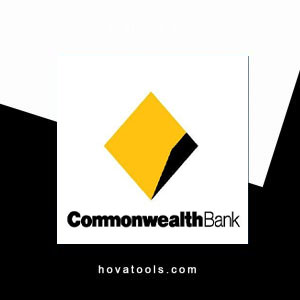Outline
I. Introduction
A. Definition of Free Bank Login
B. Importance of Free Bank Login
C. Risks associated with Free Bank Login
II. How to Get a Free Bank Login
A. Online Hacking Communities
B. Dark Web Marketplaces
C. Phishing Attacks
D. Social Engineering Techniques
III. Risks of Using Free Bank Login
A. Financial Loss
B. Identity Theft
C. Legal Issues
D. Repercussions on Credit Score
IV. How to Protect Yourself from Free Bank Login
A. Use Strong Passwords
B. Enable Two-Factor Authentication
C. Regularly Monitor Your Accounts
D. Avoid Suspicious Emails and Websites
V. Conclusion
A. Recap of the Risks and Protection Measures
B. Final Thoughts
VI. FAQs
A. Is it legal to use a free bank login?
B. What should I do if I suspect my bank login has been compromised?
C. How can I tell if a website is secure for online banking?
D. What are the best practices for creating a strong password?
E. Can a two-factor authentication be hacked?

Free Bank Login: Risks, Dangers, and Protection
In today’s digital world, online banking has become a convenient way for people to manage their finances. With just a few clicks, you can transfer funds, pay bills, and monitor your account activity from the comfort of your own home. However, with convenience comes risk. Free bank login, also known as stolen bank credentials, have become increasingly prevalent in the criminal underworld. In this article, we will discuss what free bank login is, how to obtain it, and most importantly, how to protect yourself from falling victim to this crime.
What is Free Bank Login?
Free bank login is a term used to describe stolen bank credentials that are being sold or traded on the dark web and most clear nets. These credentials can include usernames, passwords, and other identifying information that are used to gain access to a victim’s bank account. Free bank login is obtained through various illegal means, such as hacking, phishing, or social engineering. The perpetrators of this crime use the stolen information to transfer funds, make purchases, or commit identity theft.
Best Selling Bank Logins
-
- Australia Bank Login
ANZ Bank Australia Logins
- $180.00 – $450.00
- Select options This product has multiple variants. The options may be chosen on the product page
-
- Australia Bank Login
Commonwealth Bank Australia Logins
- $180.00 – $700.00
- Select options This product has multiple variants. The options may be chosen on the product page
-
- Australia Bank Login
National Australian Bank Logins
- $180.00 – $1,000.00
- Select options This product has multiple variants. The options may be chosen on the product page
-
- Australia Bank Login
Suncorp Bank Australia logins
- $180.00 – $450.00
- Select options This product has multiple variants. The options may be chosen on the product page
These are the details we will give you for login and other purposes after you have bought bank account logins.
Username | Password | Security Questions | Answers | Email Access | Holder Name | Number Account | Bank Name | Phone Number | Address | Date | Mother Maiden’s Name | CVV2Username | Password | Security Questions | Answers | Email Access | Holder Name | Number Account | Bank Name | Phone Number | Address | Date | Mother Maiden’s Name | CVV2
How to Get a Free Bank Login
Free bank login can be obtained through various illegal means. Some of the most common ways include:
Online Hacking Communities
Online hacking communities are a gathering place for individuals who have a particular interest in hacking and cybercrime. These communities offer a platform for like-minded individuals to share their knowledge and tools, including bank login information. The information shared in these communities is often obtained through hacking techniques such as SQL injection, keylogging, or malware.
Dark Web Marketplaces
The dark web is a hidden part of the internet that is not accessible through traditional search engines. It is notorious for being a marketplace for illegal goods and services, including free bank login. Dark web marketplaces offer a platform for individuals to buy and sell stolen bank credentials in exchange for cryptocurrency.
Phishing Attacks
Phishing attacks are a common method used by cybercriminals to obtain free bank login information. In a phishing attack, the victim receives an email that appears to be from their bank, asking them to click on a link and log in to their account. The link takes the victim to a fake website that looks identical to the bank’s website, where they enter their login credentials, unknowingly giving them to the perpetrator.
Social Engineering Techniques
Social engineering techniques involve the manipulation of individuals to obtain their bank login information. Perpetrators may pose as bank employees or use other tactics to gain the victim’s trust by asking for their login credentials or other sensitive information.
Risks of Using Free Bank Login
Using bank login information can have severe consequences. The risks of using bank login include:
Financial Loss
Bank login information is often used by perpetrators to transfer funds out of the victim’s account or make unauthorized purchases. The victim may incur significant financial losses and may not be able to recover their money.
Identity Theft
Bank login information can be used to steal the victim’s identity, including their personal and financial information. This can lead to further financial losses and long-term repercussions, such as a negative impact on their credit score.
Legal Issues
Using bank login is illegal and can lead to criminal charges. The victim may be held responsible for any fraudulent activity that occurs using their account, even if they did not initiate it.
Repercussions on Credit Score
Using free login can lead to a negative impact on the victim’s credit score, as any unpaid bills or debts incurred by the perpetrator can reflect poorly on the victim’s credit report.
How to Protect Yourself from Free Bank Login
To protect yourself from bank login, it is important to take the following precautions:
Use Strong Passwords
Use strong and unique passwords for all your online accounts, including your bank account. A strong password should be at least eight characters long, contain a mix of uppercase and lowercase letters, numbers, and special characters.
Enable Two-Factor Authentication
Two-factor authentication provides an additional layer of security by requiring the user to provide a second form of identification, such as a fingerprint or a code sent to their mobile device, before logging in.
Regularly Monitor Your Accounts
Regularly monitor your bank accounts for any suspicious activity. Report any unauthorized transactions to your bank immediately.
Avoid Suspicious Emails and Websites
Be cautious of emails or websites that ask for your login credentials or other sensitive information. Only provide your information on trusted and secure websites.
Conclusion
Bank login is a serious crime that can have severe consequences for victims. It is important to take precautions to protect yourself from falling victim to this crime. By using strong passwords, enabling two-factor authentication, regularly monitoring your accounts, and avoiding suspicious emails and websites, you can reduce the risk of becoming a victim.
FAQs
Is it legal to use a bank login?
No, using bank login is illegal and can lead to criminal charges.
What should I do if I suspect my bank login has been compromised?
Report any suspicious activity to your bank immediately. Change your passwords and enable two-factor authentication.
How can I tell if a website is secure for online banking?
Look for the lock icon in the address bar and make sure the URL starts with “https”. This indicates that the website is using a secure connection.
What are the best practices for creating a strong password?
Use a mix of uppercase and lowercase letters, numbers, and special characters. Avoid using easily guessable information such as your name, birthdate, or pet’s name.
Can a two-factor authentication be hacked?
While no security measure is foolproof, two-factor authentication provides an additional layer of security that makes it more difficult for hackers to gain access to your accounts.
Don’t Know How to Use Bank Logins? Buy Instant Money Transfer Services

Contact
We are always available to take your orders 24/7. CONTACT US









